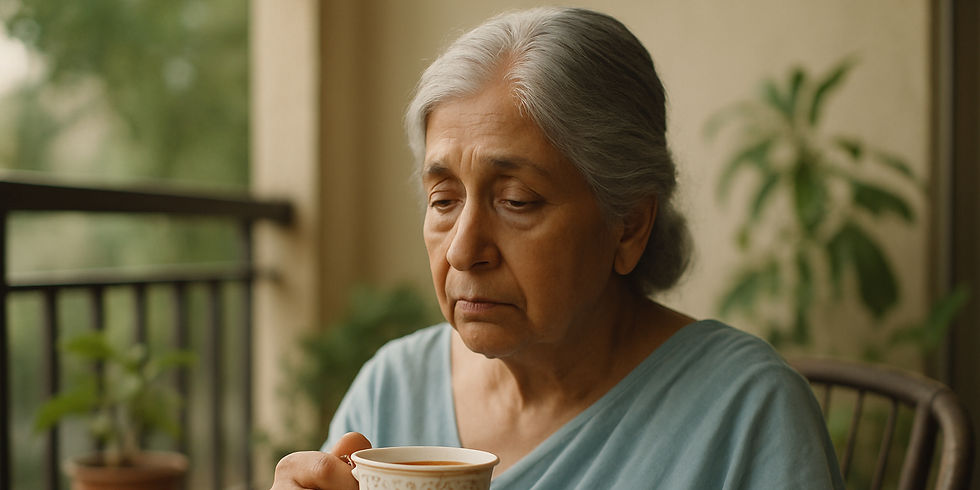When Your Loved One with Dementia Doesn’t Realize Anything Is Wrong-Understanding Anosognosia
- saqlainm5
- Apr 15
- 2 min read
At HCCL, we often care for individuals living with dementia who sincerely believe they don’t need help or don’t have any memory issues. This condition, known as anosognosia (pronounced an-ah-sog-NO-zia), can be deeply confusing and challenging for families.
What Is Anosognosia?
Anosognosia is the clinical term for a lack of awareness of one’s own condition. A person with dementia and anosognosia truly doesn’t realize they’re experiencing memory loss or behavioral changes. This isn’t denial — it’s a neurological effect of the disease. Even when shown clear proof, they may remain unaware, leading to frustration, resistance, or even risky behavior.
Common Signs
Blaming others for mistakes
Ignoring safety concerns (e.g., attempting to drive despite losing a license)
Refusing medications because they “don’t have a problem”
Misinterpreting concern as control
Real-Life Example
One of our clients’ daughters believed her father was simply in denial. She kept reminding him of his diagnosis, which led to more resistance. With support and guidance, she learned he wasn’t refusing care on purpose — he truly didn’t know. By shifting her approach, their relationship and his cooperation improved significantly.
How to Support Someone with Anosognosia
At HCCL, we recommend using the LEAP model in such situations:
Listen carefully to what the person is saying
Empathize with their emotions
Agree rather than argue
Partner with them in tasks
Instead of correcting, connect. For example:
“I’m tired of people telling me what to do.”Response: “Sounds like that’s really frustrating for you.”
This approach helps reduce tension and builds trust.
We’re Here to Help
Caring for someone with dementia requires more than medical knowledge takes empathy, patience, and specialized training. Our caregivers at Home and Community Care Ltd. are trained to handle such delicate situations with dignity and understanding, ensuring both safety and emotional well-being.
If you're facing this challenge with a loved one, know that you are not alone, and help is just a call away.






Comments